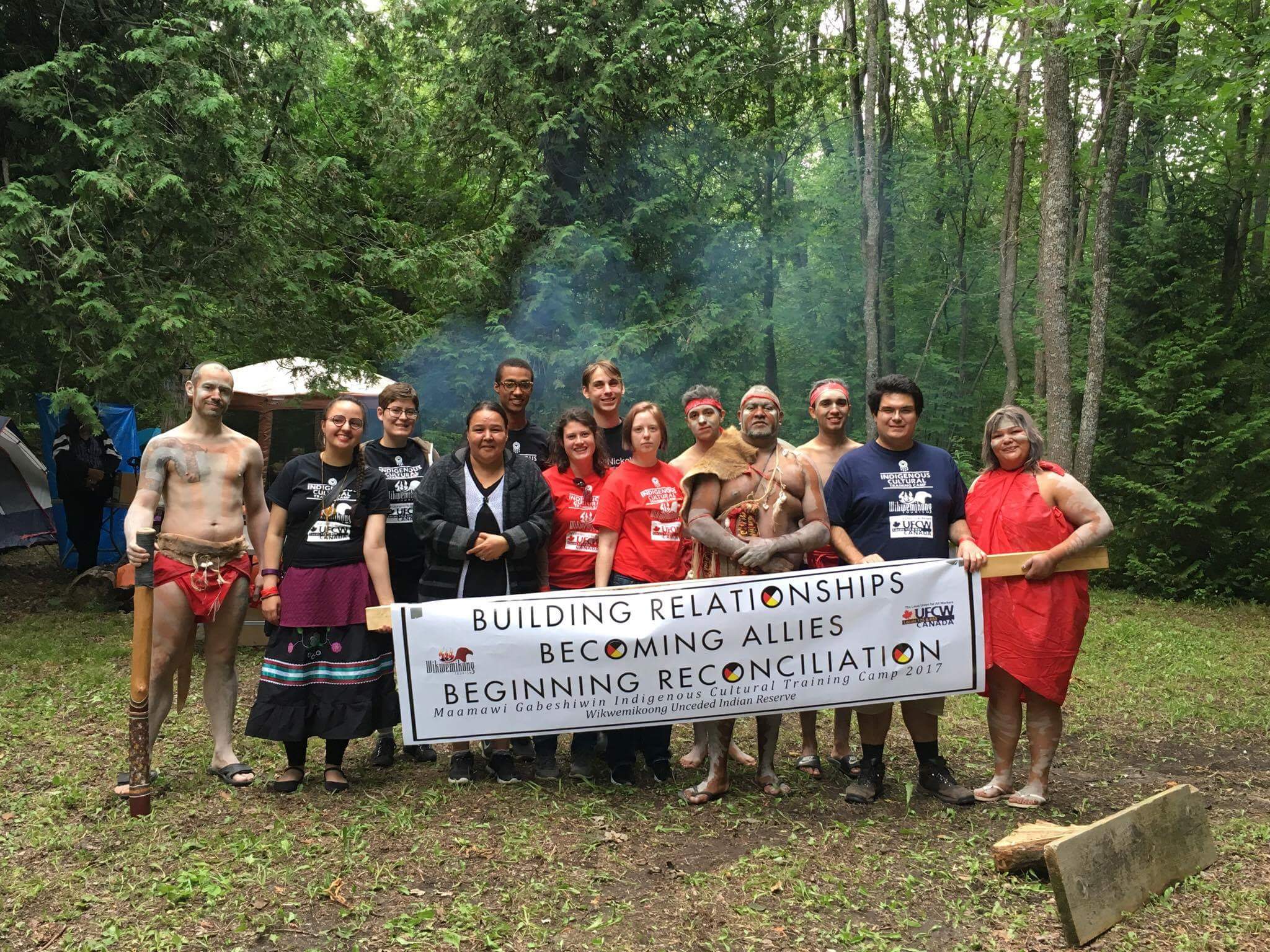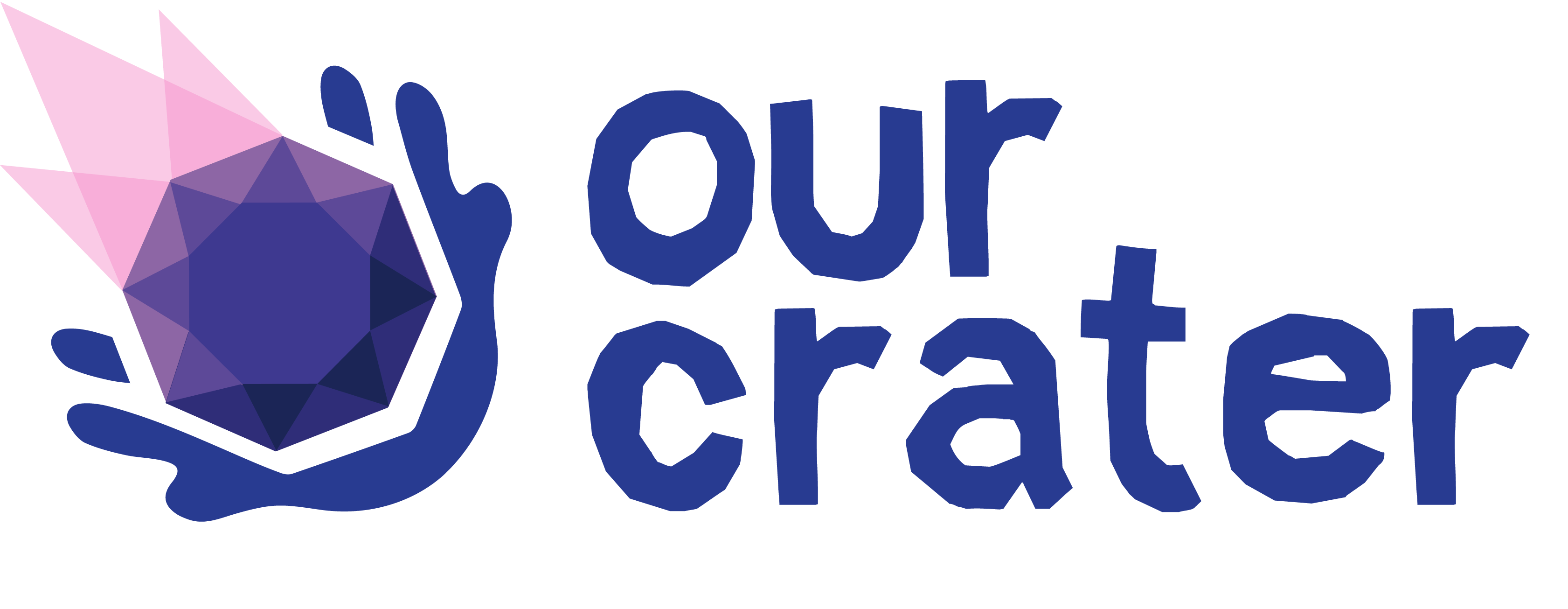RECONNECTING WITH YOUR ROOTS AT CULTURAL TRAINING CAMP

At a time when Indigenous issues are at large Laurentian University student Kaella Earle seeks to help Northerners reconnect with their roots. With only a month of planning Earle organized a long weekend retreat in Wikwemikong featuring traditional craft making, Indigenous fare and healing group exercises. This camp offered attendees a unique opportunity to learn from elders and teachers in the Aboriginal community help them in their journey of cultural learning.
Tell us a bit about the Wikwemikong Indigenous Cultural Training Camp and where the idea came from?
The Indigenous Cultural Training Camp is a brainchild that I came up with last month. In Canada, there is a massive gap in education for everyone on Indigenous culture. The Canadian government tries very hard to suppress cultural and historical education on Indigenous peoples in Canada. In some ways I suppose its understandable. Its probably Canada’s biggest embarrassment as a country to have so horribly oppressed a people. By not choosing to include that information in the schooling systems, the government fosters a country to continue to hate people
The issues facing Indigenous peoples even currently are just as bad. Children are still being stolen from their homes and put into foster care, where we experience disproportional representation in the foster child care system. This is occurring at larger rates than when the government was forcing children to attend residential schools. Except now instead of dying of just malnutrition, disease or abuse – children in our communities are experiencing high suicide rates, which the Canadian government continues to fail to address.
The list of injustices goes on, and I can’t sit here and wait for the government to do something. Bridging the educational gap for Canadians on Indigenous peoples will reduce racism and help rebuild the originally positive relationship that Indigenous peoples had with the settler population in Canada.
What kinds of activities will campers get a chance to participate in?
Campers participated in a wide variety of activities including a welcoming from Ogimaa Duke Peltier (chief of Wikwemkoong) Unceded Journey tour from Wikwemkoong Tourism, Intertribal and Round Dance participation at the Wiikwemkoong 57th Annual Cultural Festival, eating traditional foods (moose meat, wild rice, smoked trout), four medicines teachings, creation story teachings, Indigenous identity teachings, Indigenous governance teachings, medicine pouch making, dreamcatcher weaving and teachings, a blanket exercise from KAIROS, and reflection circles.
How has the experience of getting in touch with their culture affected campers who have lost connection to their background?
We had a camper who actually lost touch with his Indigenous identity due to the 60s scoop. It was a very emotional and eye-opening weekend for not just him but for everyone. Hearing his reflections about how he would take back this information and re-introduce it to his family was really something.
Understanding the viewpoint of non-Indigenous peoples as this information is presented is also very important. It is important to remember that settlers and settler descendants have been deprived of their right to this information as well, and this is a large part of what is causing conflict between our peoples in Canada. People just aren’t aware. When they do become aware it is a harrowing experience for them, and often one of heavy guilt which was something that was often expressed at the camp.This is part of what I imagine will propel non-Indigenous people toward the TRC’s 94 Calls to Action, and to work alongside Indigenous peoples to achieve these preset goals.
Are all campers welcome at Indigenous Cultural Training Camp?
The camp is for youth aged 18-30. Participants were chosen based on their willingness to change the narrative on Indigenous peoples in Canada as well as their need to re-learn the culture after it was stolen from their family. Exercises such as the KAIROS blanket exercise make the camp a very emotional one, and one difficult for many people to face. Presented information at time was triggering, even for myself. I’m familiar with the violent history of colonization for Indigenous peoples in Canada and I remember during the KAIROS blanket exercise not being able to stop crying at what was being said. Campers were very brave, and I commend them for making this effort.
Is it too late to sign up for the 2017 camping season?
Unfortunately we just hosted our group of campers this past weekend. It was set for August 5-7 at Gordies Beach in Wikwemkoong. However, the camp will be occurring next year on the same long weekend in August and likely in the same place. If anyone is interested in helping organize or applying, I welcome them to get in touch!
What other resources in Sudbury would you recommend for someone looking to get in touch with or learn more about Indigenous culture?
The N’Swakamok Friendship Centre in Sudbury is an excellent place and has been part of my journey to recover my Indigenous identity. I also encourage people to reach out to the elders at Laurentian University and Cambrian College, as well as the Indigenous Learning and Sharing Centre (Laurentian) and Wabnode (Cambrian).
Where can we find out more about Indigenous Cultural Training Camp and follow for updates?
I can be contacted for more information at km_earle@laurentian.ca and I’m also on Facebook at Azhiniienhs Kwe.
Recommended Posts

SUDBURY MIGHT BE THE WEDDING CAPITAL OF THE NORTH!
February 26, 2020

SUDBURY COMMUTER CHALLENGE IS UNDERWAY
June 02, 2019

Eats & Asana with Selina Rose
May 24, 2018

